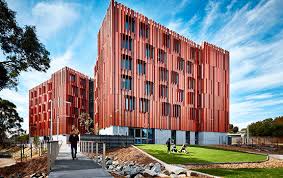Monash University: Empowering the community in smart city conversations
Data-sensing technologies in urban spaces are measuring weather conditions, pedestrian foot traffic, determining when bins need to be emptied and sensing on street parking – how do we ethically capture, analyse, apply and communicate data to empower local people?
Launching today, a new report from the Emerging Technologies Research Lab (ETLab) at Monash University in collaboration with the City of Melbourne has put a lens on how Melbourne’s real-time public data can be gathered and used, to better plan for inclusive future smart cities.
In many major cities, emerging technologies are adopted to improve urban efficiency. Technologies like Artificial intelligence (AI), Internet of Things (IoT) and 5G are just some of the advancements that are improving the quality of life for many residents. Despite the benefits emerging technologies can offer, they are often used without consultation of local residents.
Taking a more transparent approach, ETLab and City of Melbourne combined research expertise with industry knowledge to learn about community values and uses for city data as new sensor technologies were tested.
The new ‘City Sensing Data Futures Project’ report builds on research collected from participants interacting with live data-gathering activations in Melbourne’s Argyle Square from February to June 2021.
The report sets out ten suggested approaches for cities to collect and use public data, which include:
Developing and implementing public data sensing models in alignment with the core values of preserving trust, privacy, transparency, open communication and care
Incorporating local values and practices into city data sensing, for example, inclusion of quotes from local people or localised information
Creating multiple and playful ways to interact with city data sensing, to encourage engagement for people of all ages, abilities and diversities to access information
Encouraging two-way communication between the city and the public through established modes like accessing city data on smartphones via QR codes and providing notifications when data is gathered
Creating opportunities for people to receive self-care information through city data alerts like wearing sun-screen or real-time updates on park capacities during lockdown etc.
Encouraging a better understanding of public data as an asset that can provide service, education and a sense of community to locals.
Through the report, the team of multidisciplinary researchers from the ETLab, which is part of the Faculty of Information Technology and the Faculty of Art, Design and Architecture at Monash University, have also put together a design proposal for cities which physically incorporates the suggested approaches towards the gathering and use of data.
Technology futures expert and ETLab Director Professor Sarah Pink said the aim was to present a very tangible and realistic way to implement public engagement with city data while preserving the core values geared towards preserving privacy and encouraging transparent communication.
“The actual designs and structures created for Argyle Square drew on our in-depth research with people who use the square.
“We used bold colours and created a ‘family’ of characters to encourage playful engagement with the installation. People could access the city data through QR codes using their smartphones or learn about how the City collects data through the printed explanatory labels which were aimed at people without digital devices,” Professor Pink said.
ETLab Project Manager Bianca Vallentine added sustainable materials were used and various health and safety precautions were considered while trying to create structures that would enable interactions with a diverse range of Melbournians.
The findings and information gathered from this partnership between the City of Melbourne and ETLab have the ability to be replicated in other urban spaces and major cities.
City of Melbourne Lord Mayor Sally Capp said the project reaffirms the commitment to making data more accessible and useable for all Melburnians.
“Melbourne is a smart city and we want to work with the community to design, develop and test new ways to share data and knowledge for the benefit of all. This research from ETLab will build on our open data approach so that we can share our use of technology and collection of data with the community in new and exciting ways,” Lord Mayor Capp said.
This report expands on ETLab’s previous research conducted during the COVID-19 lockdown between June and September 2020.
The ‘City Sensing Data Futures Project’ report will be publicly launched at the City of Melbourne’s Micro Labs today i.e. Thursday 8 September from 5:30pm. To attend the event register here, or read the full report here.
ETLab Director Professor Sarah Pink is available for interviews. Images of the City Sensing Data Futures Project activation in Melbourne’s Argyle Square are available on request.

